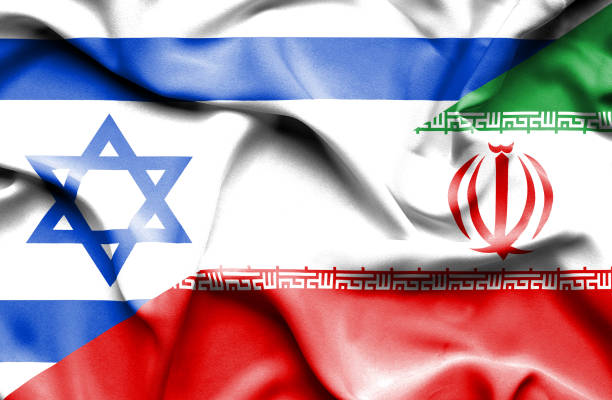
The Middle East has been on everyone’s mind over the last few months due to the on-going atrocities happening in Gaza that sparked after an attack by Hamas against Israel’s territory that disproportionately developed into a serious conflict—or, better said, genocide. Tensions grew as the UN failed to effectively implement a long-lasting ceasefire, allowing for the conflict to continue and for thousands of lives to be claimed in Palestine.
It goes without saying how this conflict is impacting the region and all the neighboring countries that have to adapt their policies, find allies, or abstain themselves from the conflict in order to be more protected by the international community. In the midst of this, a country that has been slipping away from the spotlight is Iran, which, with its influence in the region and diplomatic relations with countries like China, could have had enormous relevancy in the past months.
The relationship between Iran and both Palestine and Israel is as complex as the ongoing conflict itself, especially when it comes to the diplomacy between the countries with Tel-Aviv. Once allies, nowadays their relationship is filled with animosity and ideal disparities, which ultimately makes them not the best of allies in the region.
When analyzing their relationship, we must first contextualize the issue by presenting the historical closeness that Iran has with Palestine and how it has unquestionably affected the modern relationship between the countries in the region. In the early 20th century, the relationship between Iran and Israel was completely amicable. So much so that Iran was the second Muslim-majority country to recognize Israel when it was founded in the 1940s.
But when it came to Palestine, Iran, one of the 11 members of the Special UN Committee that gathered in 1947 to propose a solution for Palestine post-British colonialism, was one of the three that voted against the UN’s partition plan for Palestine, as they believed it could escalate violence in the region for many future generations. Therefore, Iran, alongside the others, proposed a federative solution where Palestine would be one single state rather than being divided into Arab and Jewish regions.
As we well know, Israel proceeded to occupy more territory than the UN commission had previously approved, leading to the ethnic cleansing of over 700,000 Palestinians. Iran’s main concern in this period was protecting the 2000 Iranians that lived in the area and had their property confiscated by the Israeli army. Beyond that, Israel began to pursue more alliances with countries beyond the Middle East as part of their “periphery doctrine.”.
In 1951, Iranian new prime minister Mohammad Mosaddegh planned on promoting a policy and a movement of nationalization of the Iranian oil industry that had been monopolized by the British for decades, going against what the country needed for their economy to grow. With this movement, he then severed ties with Israel, as he claimed that Israel was a mere puppet of sorts, serving western interests in the Middle East.
Two years later, with the direct influence of US and UK intelligence services, Mohammad’s government was overthrown in a coup and a new leader was placed in Tehran, who quickly placed Iran as an ally to the West, allowing even embassies to be placed in the capital in the 1970s. The oil trade grew stronger with Israel and Europe, and intense military cooperation between Israel and Iran was formed.
All of this lasted until 1979, when a revolution in Iran took place and the Islamic Republic of Iran was created. This new administration had at the forefront of its interests to stand against the arrogant world powers and their allies, who would continuously oppress others to serve their own interests. Iran proceeded to cut all ties with Israel, and the Israeli embassy in Tehran became the Palestinian embassy in the territory.
Since then, the relationship between Iran and Israel has been clashing, as Israel has backed multiple groups who are violently opposed to Iran and some organizations considered by Iran to be terrorists, such as the Mojahedin-e Khalq (MEK), which stems from European xenophobia and disgust for Iran and its citizens.
On a more recent side of things, Iran’s close relationship with China also comes in as a great topic to be discussed regarding their current situation. The US, an ally to Israel, might see the effects of the war that they are so closely funding reach Iranian territory, and if it escalates to Iran joining the war, the levels of influence that China might have in the region can be seen as threatening.
To get ahead of a possible conflict with China, the Biden administration scheduled a meeting a few months ago with Beijing to discuss an array of issues, including diplomatic, economic, and military ones, that undoubtedly included the war in the Middle East. As far as it seems, China is upholding their word and promises of non-interference in the region, much to the US satisfaction.
But we just might see this change after the recent events in Syria, where an Israeli airstrike in the country ended up claiming the life of a top Iranian military advisor. This Zionist attack could have unimaginable consequences for Israel, which might now face Iran as a new enemy in their conquest to impose their values in the Middle East. But how successful will they be, considering the intense influence that Iran has in the region?
By The European Institute for International Law and International Relations
REFERENCES














